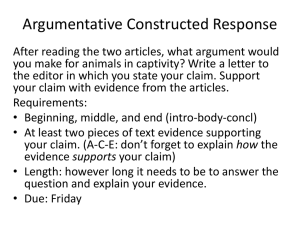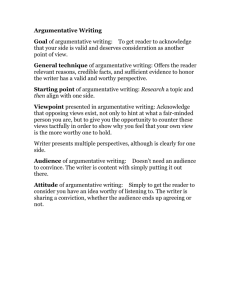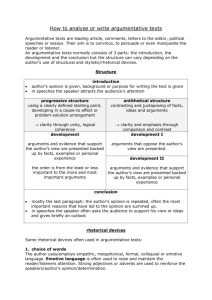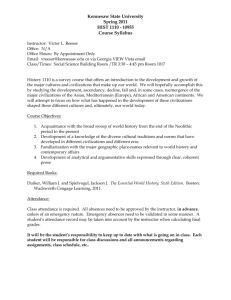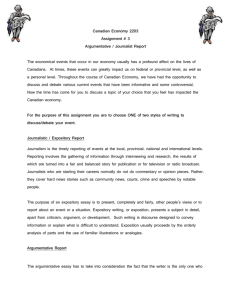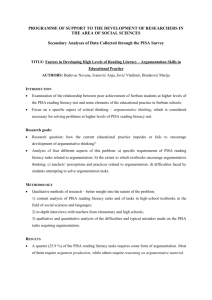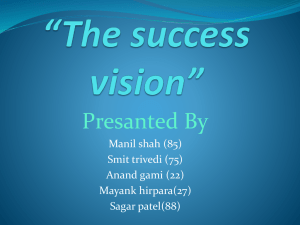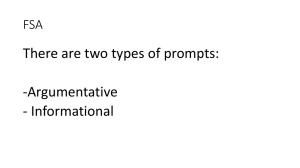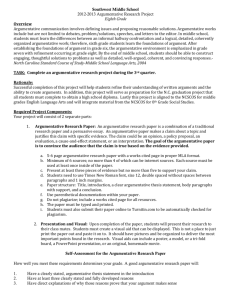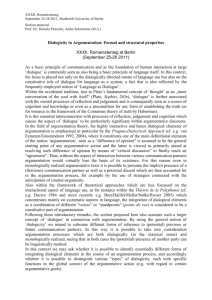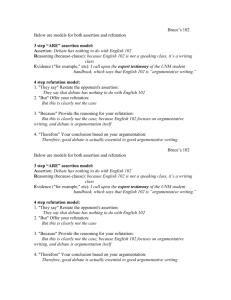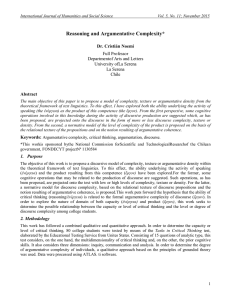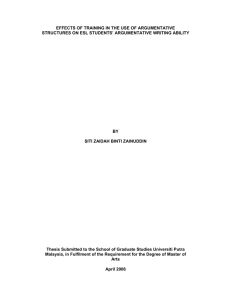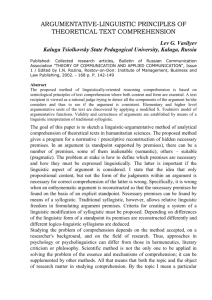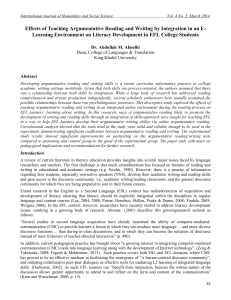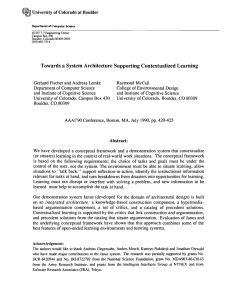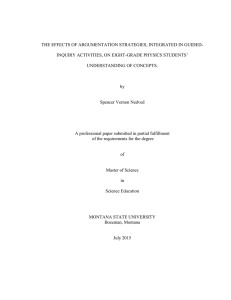The role of emotions, and motivational beliefs in the argumentative
advertisement
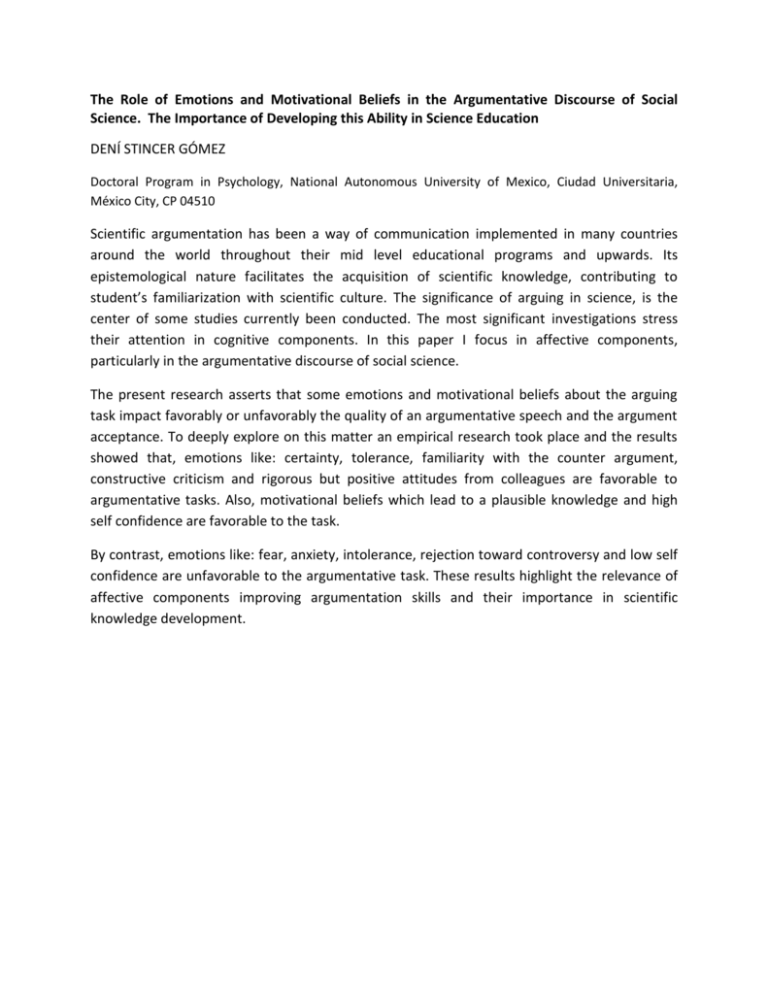
The Role of Emotions and Motivational Beliefs in the Argumentative Discourse of Social Science. The Importance of Developing this Ability in Science Education DENÍ STINCER GÓMEZ Doctoral Program in Psychology, National Autonomous University of Mexico, Ciudad Universitaria, México City, CP 04510 Scientific argumentation has been a way of communication implemented in many countries around the world throughout their mid level educational programs and upwards. Its epistemological nature facilitates the acquisition of scientific knowledge, contributing to student’s familiarization with scientific culture. The significance of arguing in science, is the center of some studies currently been conducted. The most significant investigations stress their attention in cognitive components. In this paper I focus in affective components, particularly in the argumentative discourse of social science. The present research asserts that some emotions and motivational beliefs about the arguing task impact favorably or unfavorably the quality of an argumentative speech and the argument acceptance. To deeply explore on this matter an empirical research took place and the results showed that, emotions like: certainty, tolerance, familiarity with the counter argument, constructive criticism and rigorous but positive attitudes from colleagues are favorable to argumentative tasks. Also, motivational beliefs which lead to a plausible knowledge and high self confidence are favorable to the task. By contrast, emotions like: fear, anxiety, intolerance, rejection toward controversy and low self confidence are unfavorable to the argumentative task. These results highlight the relevance of affective components improving argumentation skills and their importance in scientific knowledge development.

